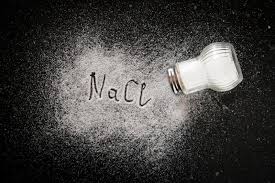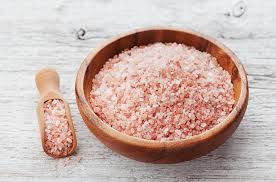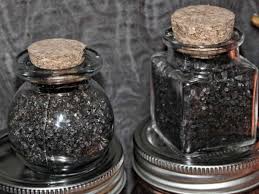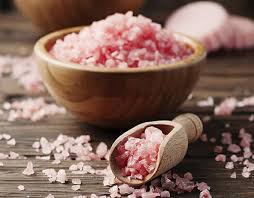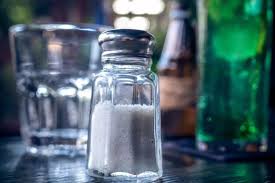Content of the Article
Salt is a widely used and naturally occurring compound. In addition to enhancing flavor in meals, it is used as a food preservative and helps stop the growth of bacteria.
Experts recommend limiting sodium intake below 2300 mg. Remember that only 40% of salt is sodium, which is about 1 teaspoon (6 grams).
Some evidence suggests that salt can affect people differently and not have as many effects on heart disease as we once thought.
In the article "What is salt good for", "what are the benefits of salt", "is salt harmful" Questions such as will be answered.
Salt plays an important role in the body
Salt, also known as sodium chloride, is a compound made up of 40% sodium and 60% chloride, two minerals that play an important role in health.
Sodium concentrations are carefully regulated by the body and fluctuations cause negative side effects.
Sodium is involved in muscle spasms, and sweat or fluid losses contribute to muscle cramping in athletes. It also maintains nerve function and tightly regulates both blood volume and blood pressure.
Chloride is the second most abundant electrolyte after sodium in the blood. ElectrolytesThey are atoms in body fluid that carry an electrical charge and are essential for everything from nerve impulses to fluid balance.
Low chloride levels can cause a condition called respiratory acidosis, where carbon dioxide builds up in the blood and causes the blood to become more acidic.
Although both of these minerals are important, studies show that individuals react differently to sodium.
Although some people may not be affected by a high-salt diet, others with high blood pressure or an increase in sodium intake swelling viable.
Those who experience these effects are considered salt sensitive and need to regulate their sodium intake more carefully than others.
What Are the Benefits of Salt?
The sodium ions in salt help maintain the electrolytic balance in your body. It can help relieve muscle cramps and treat dental infections. Gargling with warm / hot salt water frees up airway passages and helps relieve sinusitis and asthma.
Used for oral rehydration
Diarrhea and chronic pathogenic diseases such as cholera cause dehydration. Dehydration causes water and mineral loss from the body. If not renewed, it will impair the functioning of the kidneys and GI tract.
Providing water-soluble salts and glucose orally is the fastest way to deal with this type of loss of function. Oral rehydration solution (ORS) may be given to patients with diarrhea and other pathogenic diseases.
May relieve muscle (leg) cramps
Leg cramps are common in older adults and athletes. Little is known about its exact cause. Exercise, body weight fluctuations, pregnancy, electrolyte imbalances, and body salt loss are several risk factors.
Intense physical activity in the summer heat is a major cause of involuntary cramps. Field athletes can lose 4-6 teaspoons of salt a day due to excessive sweating. Eating foods that are natural sources of salt can reduce the severity of cramps. In such cases, it is recommended to increase sodium intake.
May help manage cystic fibrosis
Cystic fibrosis is a genetic condition characterized by excessive salt and mineral loss through sweat, dehydration, and mucus secretion. Excess mucus blocks ducts in the intestines and the GI tract.
The loss of sodium and chloride ions in the form of sodium chloride is so high that patients' skin is salty. In order to compensate for this loss, such individuals must eat salty foods.
It can improve dental health
Enamel is a hard layer that covers our teeth. It protects them from plaque and acid attacks. The enamel is made from a soluble salt called hydroxyapatite. Tooth decay occurs when such salts dissolve due to plaque buildup.
Without enamel, teeth become demineralized and weaken with caries. Using salt-based mouthwashes, similar to brushing teeth or flossing, can cause cavities and gingivitis may have preventive effects on.
It can relieve sore throat and sinusitis
Gargling with warm salt water can relieve a sore throat and also help treat upper respiratory infections. Still, there is not enough scientific evidence to prove this effect. Salt water can relieve the itching sensation in the throat, but does not necessarily shorten the duration of the infection.
Washing your nostrils with salt water (nasal wash) is an effective remedy for sinusitis. Salt water can remove congestion that prevents normal breathing.
Reducing salt can lower blood pressure
High blood pressure causes extra tension in the heart and is one of the risk factors for heart disease.
Several large studies have shown that a low-salt diet can help lower blood pressure, especially in people with high blood pressure.
A review of 3230 participants found that a modest reduction in salt intake resulted in a modest decrease in blood pressure, resulting in a decrease of 4.18mmHg for systolic blood pressure and 2.06mmHg for diastolic blood pressure.
Although it lowers blood pressure for those with high and normal blood pressure, this effect is greater for those with high blood pressure.
Another large study had similar findings, stating that reduced salt intake led to a decrease in blood pressure, especially in people with high blood pressure.
Keep in mind that some people may be more sensitive to salt's effects on blood pressure. Those who are salt-sensitive are more likely to experience a drop in blood pressure on a low-salt diet; Those with normal blood pressure do not see much of an effect.
Reducing salt does not reduce the risk of heart disease or death
There is some evidence to suggest that high salt intake may be associated with an increased risk of certain conditions, such as stomach cancer or high blood pressure. Despite this, there are several studies that show that reducing salt does not actually reduce the risk of heart disease or death.
A large review study of seven studies found that salt reduction had no effect on heart disease or death risk.
Another review with over 7000 participants showed that reduced salt intake did not affect the risk of death and was only weakly associated with heart disease risk.
Reducing salt intake does not automatically reduce the risk of heart disease or death for everyone.
Low salt consumption can be harmful
Although high salt intake is linked to a variety of conditions, reducing salt can also have some negative side effects.
Several studies have shown that consuming less salt may be linked to increased blood cholesterol and blood triglyceride levels. These are fatty substances in the blood that accumulate in the arteries and can increase the risk of heart disease.
A large study showed that a low-salt diet increased blood cholesterol by 2.5% and blood triglycerides by 7%.
Another study found that a low-salt diet increased "bad" LDL cholesterol by 4.6% and blood triglycerides by 5.9%.
Other research has found that salt restriction may be insulin resistant. Insulin resistanceIt causes insulin to work less effectively, high blood sugar levels, and also the risk of diabetes.
A low salt diet can also cause a condition called hyponatremia or low blood sodium. With hyponatremia, our body retains extra water due to a low sodium level, too much heat or overhydration; this too headachecauses symptoms such as fatigue, nausea, and dizziness.
What are the Harms of Excess Salt?
Effects on cardiovascular health
The Institute of Medicine and other researchers concluded that reducing sodium intake lowers blood pressure. In a Japanese study, reducing salt intake was associated with a significant reduction in hypertension and stroke mortality. This was observed in normal and hypertensive subjects regardless of their gender and race.
May cause kidney disease
High blood pressure causes increased calcium excretion. Calcium ions disappear from bone mineral reserves and accumulate in the kidneys. This accumulation causes stone formation in the kidneys and urinary tract over time.
It can trigger osteoporosis
Eating more salt causes an increase in calcium excretion. Calcium loss causes bone mineral reserves to be depleted. Bone demineralization (or thinning) ultimately occurs as osteoporosis.
Studies have shown that reducing salt intake can slow bone loss associated with aging and menopause. It is also suggested that hypertension and stroke increase the risk of osteoporosis.
Too much salt consumption has been associated with stomach cancer.
Some evidence links increased salt intake to an increased risk of stomach cancer. This is because it facilitates the growth of Helicobacter pylori, a type of bacteria associated with a high risk of stomach cancer.
In a 2011 study, over 1000 participants were examined and it was reported that high salt intake increases the risk of stomach cancer.
Another large review of 268.718 participants found that those who consumed a high salt intake had a 68% higher risk of stomach cancer than those with a low salt intake.
How to reduce the symptoms due to salt consumption?
In order to reduce salt-related bloating or lower blood pressure, some situations require attention.
First of all, reducing sodium intake can be beneficial for those who experience symptoms related to high salt intake.
If you think the easiest way to reduce sodium is not to add salt to your food, you might be wrong.
The main source of sodium in the diet is actually processed foods that make up 77% of sodium. To reduce sodium intake, replace processed foods with natural and healthy foods.
This not only reduces sodium intake, but also helps a healthier diet rich in vitamins, minerals, fiber and essential nutrients.
If you need to cut down on sodium even more, give up restaurant and fast food diets.
In addition to reducing sodium intake, there are a few other factors that can help lower blood pressure.
Magnesium ve potassium are two minerals that regulate blood pressure. Increasing your intake of these nutrients through foods like leafy greens and vegetables can help lower blood pressure.
Some studies have shown that a low-carb diet can be effective in lowering blood pressure.
Overall, moderate sodium consumption through a healthy diet and lifestyle is the simplest way to alleviate some of the effects that can come with salt sensitivity.
As a result;
Salt is an important part of the diet and its components play important roles in our body. However, for some people, too much salt may be associated with conditions such as an increased risk of stomach cancer and high blood pressure.
However, salt affects people differently and does not have negative health effects for everyone. For most people, the recommended daily consumption of around a teaspoon (6 grams) of sodium is ideal. If your doctor has recommended reducing salt, this rate may drop even more.

